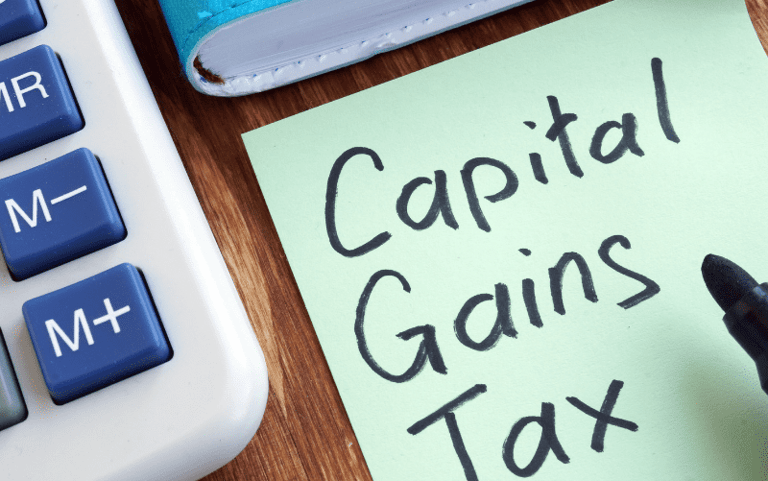Rachel Reeves Considering Capital Gains Tax Hike to 39%
In today's blog we consider how a potential hike in CGT under the new government might impact on you.
TAX COMPLIANCEHMRCTAX CHANGESCAPITAL GAINS TAXBUDGET


British finance minister Rachel Reeves is reportedly considering a significant increase in Capital Gains Tax (CGT), potentially hiking the rate to as much as 39% in her upcoming October 30th budget, according to The Guardian.
The possibility of such a move has sparked widespread speculation and concern among investors, business owners, and higher-earning taxpayers. But what does this mean for you, and how might it impact your financial future?
What is the Current Capital Gains Tax Rate?
Currently, CGT is paid by higher-rate taxpayers at rates ranging from 20% to 28%, depending on the type of asset being sold. For property, the rate is at the higher end of the spectrum, while gains from shares and other assets are taxed at 20%. This rate already puts a burden on those looking to sell investments, but a potential increase to 39% would significantly increase that tax bill.
Why is Rachel Reeves Considering Raising CGT?
This potential CGT hike is reportedly part of Reeves’ effort to find additional revenue to fill a £25 billion hole in the UK budget, as estimated by the Institute for Fiscal Studies (IFS). Labour has pledged not to increase the main rates of income tax, value-added tax (VAT), or social security contributions, limiting the government's options for raising new funds.
The IFS has also pointed out that CGT currently only raises £15 billion a year, less than 2% of total tax revenue. Only 0.65% of British adults pay CGT, which suggests it could be a targeted way to raise revenue without impacting the majority of taxpayers.
What Could a CGT Increase Mean for You?
Property Investors
If you’re a property investor, this potential hike could have significant consequences. Selling properties might become less attractive due to the increased tax burden. Higher-rate taxpayers currently pay 28% CGT on property sales, but if this rises to 39%, it could wipe out a large portion of your profits.Business Owners and Entrepreneurs
If you’re considering selling a business or valuable assets, the timing of your sale could be crucial. A sharp increase in CGT could deter many from selling their businesses, as the potential profits would be severely reduced by tax liabilities.Investors
The CGT hike could also affect investors in stocks, shares, and other assets. For those who rely on selling investments to generate capital, an increased CGT rate could make portfolio management more challenging. If the CGT rises from 20% to 39%, nearly double the current rate, it would dramatically affect long-term returns.


Is This Speculation or a Real Possibility?
It’s important to note that a spokesperson for the finance ministry has dismissed the Guardian report as “speculation,” claiming it is not based on official government modelling. However, the idea of raising CGT has been floated by experts and think tanks, such as the IFS, who believe it could help address the budget shortfall without breaching Labour's election pledges not to raise income tax, VAT, or social security contributions
If you're concerned about the potential for a Capital Gains Tax (CGT) increase in the upcoming budget, it’s important to take proactive steps to mitigate the potential impact. Here are key considerations to help you prepare:
1. Review Your Investment Portfolio
Assess capital gains: Start by reviewing your current investment portfolio to identify any unrealised gains that may be affected by higher CGT rates.
Consider selling assets early: If you've been holding onto assets with significant gains, you may want to consider selling them before any potential CGT increases take effect.
Rebalance your portfolio: After any disposals, consider rebalancing your portfolio to align with your long-term financial goals.
2. Use Your Annual CGT Allowance
Maximise your tax-free gains: In the UK, every individual has a CGT allowance (£6,000 in 2023/24, reduced from £12,300). Ensure you use this allowance to its fullest by strategically selling assets within the limit.
Transfer assets to a spouse: If your spouse has not used their allowance, consider transferring assets to them to double the tax-free amount you can claim as a couple.
3. Consider Timing of Future Gains
Defer or accelerate gains: If CGT rates are expected to rise, it may make sense to realise gains before the increase. Conversely, if you believe an investment’s value will grow further, you may decide to hold off until after the budget if the current rates remain unchanged.
Watch for any changes to allowances: Budget announcements could include changes to the CGT allowance itself, which might mean bringing forward planned disposals.
4. Utilise Tax-Advantaged Accounts
ISAs and pensions: Assets held within tax-efficient wrappers like ISAs (Individual Savings Accounts) and pensions are exempt from CGT. Maximise your contributions to these accounts to shield future growth from potential tax increases.
Enterprise Investment Scheme (EIS) and Seed Enterprise Investment Scheme (SEIS): These schemes offer CGT relief, so consider investing in qualifying companies if they align with your risk appetite.
5. Consider Gifting Assets
Gifting to family members: Transferring assets to children or other family members could allow you to avoid CGT, especially if their own tax rate is lower. However, this comes with inheritance tax (IHT) considerations, so professional advice is recommended.
Make use of trusts: If appropriate for your situation, trusts can help manage how and when gains are realised, potentially deferring CGT or reducing its impact.
6. Restructure or Incorporate
Incorporate investment properties or businesses: If you own investment properties or other assets as an individual, incorporating those into a limited company could result in lower tax rates. However, this requires careful planning and understanding of tax implications.
Use Entrepreneurs’ Relief (now Business Asset Disposal Relief): If you are considering selling a business, review whether you are eligible for the lower 10% CGT rate under Business Asset Disposal Relief before any potential changes are made.
7. Take Professional Advice
Get a tax review: Seek advice from a tax advisor or wealth planner to review your overall tax situation, taking into account your investments, business interests, and other sources of income.
Plan for future legislation changes: Stay informed about potential changes to CGT in the budget by consulting a professional to help you act quickly once the changes are confirmed.
By taking these steps, you can manage your exposure to any potential CGT increases and make informed decisions about your financial and tax planning.
Capital Gains Tax Expertise: The Tax Faculty LLP Managing Partner Charles Tateson Named UK Capital Gains Tax Advisor of the Year 2023
The Finance Monthly Taxation Awards recognises the achievements of tax professionals from around the globe.
Winning such an award is no small feat. It is a reflection of hard work, extensive knowledge, and an ability to navigate the intricacies of the UK tax system.
Read more about Charles and the award here.



Contact Us
Contact us today on freephone 0800 0016 878 for a free consultation on all tax issues, or fill out the handy form below and we'll get back to you as soon as possible.
Alternatively, you can email us at info@thetaxfaculty.co.uk or complete the form below.
(Please note, non-UK callers may need to call 0207 101 3845 if your line cannot connect to our 0800 number)
Feel free to contact us through WhatsApp - we accept calls and messages.
Simply click the WhatsApp button below:


